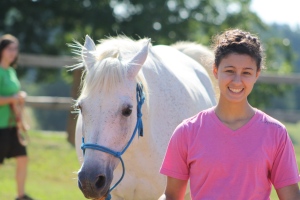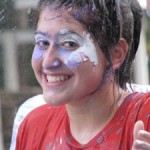Antisocial Personality Disorder
Shepherd’s Hill Academy: Empowering Parents with a Troubled Teenager
One of the most complicated disorders for parents to deal with in a son or daughter is Antisocial Personality Disorder (ASPD). A teenager with this disorder is probably impulsive, manipulative, and dishonest, does not care about the feelings of others, isn’t concerned with right or wrong, and shows no remorse or guilt for their behavior. He or she may lie, have violent tendencies, or have problems with drugs or alcohol.
“Antisocial Personality Disorder, sometimes called sociopathy, is a mental condition in which a person consistently shows no regard for right and wrong and ignores the rights and feelings of others,” states the Mayo Clinic. “Because of these characteristics, people with this disorder typically can’t fulfill responsibilities related to family, work or school.”
Diagnosing ASPD in Your Teen
The diagnosis of Antisocial Personality Disorder (ASPD) does not usually take place until age 18 or older, and then only if symptoms have been noticed by age 15 or younger. It can be confused with other disorders, most commonly sociopathy and psychopathy.

It’s easy to see how the behaviors associated with ASPD can quickly turn a family upside down.
“The severity of symptoms of antisocial personality disorder can vary” according to Psychology Today. “The more egregious, harmful, or dangerous behavior patterns are referred to as sociopathic or psychopathic. There has been much debate as to the distinction between these descriptions. Sociopathy is chiefly characterized as a something severely wrong with one’s conscience; psychopathy is characterized as a complete lack of conscience regarding others.”
Can Antisocial Personality Disorder be Cured?
The answer to whether or not there is a cure for ASPD is complicated due to the variety of ways in which the disorder exhibits in each person afflicted with it.
“Though antisocial personality disorder is difficult to treat, for some people, treatment and close follow-up over the long term may be beneficial,’’ according to the Mayo Clinic. “Look for medical and mental health professionals with experience in treating antisocial personality disorder.”
Some studies have shown that behavior therapy structured around reward systems is at least somewhat effective in changing an ASPD teen’s behavior. One of the complicating factors facing parents is that these teens do not respond to typical patterns of punishment and reward. It is estimated that between 80 and 90 percent of the prison population could be or has been diagnosed with antisocial tendencies, though there is not general agreement as to whether it is the result of genetic or environmental factors.
Shepherd’s Hill Academy Programs for ASPD and Other Diagnoses
Antisocial Personality Disorder is especially complicated to treat, and your child will most likely need long-term treatment for it and for any related conditions such as depression, substance abuse, and anxiety. Shepherd’s Hill Academy has more than 20 years of experience helping troubled teens. In most cases, we are able to customize our programs for each child’s physical and psychological needs. Ask our in-take specialist to evaluate your specific situation. Our residential program offers multiple aspects:
- New Creations Outdoor Wilderness Therapy – Generates a team environment and promotes therapeutic healing
- Next Step Program – Prepares teens to move back into the home, assigns them domestic responsibilities, and teaches them how to deal with societal issues
- Counseling – Individual, Group, and Family Counseling, monthly parent workshops, and parent and sibling conferences every six months
- Equine Program – Our instructors are certified by the O.K. Corral Series Equine Assisted Psychotherapy Group in behavioral, mental, physical, emotional and spiritual healing
- Shepherd’s Hill Academy – Accredited, private, Christian academy for middle and senior high students offering Advanced Placement classes. Our on-campus private school helps students repair poor grades, gets them to the level they need to be, and keeps them on track academically
Quality Residential Treatment for Troubled Teens
Residential care can be a critical factor in helping out-of-control teens learn positive behaviors to replace negative behaviors and thought processes as well as to learn to cope with the symptoms of a mental health diagnosis in the everyday world. Our programs and academics planning are designed around each teen’s specific needs and goals in an effort to reunite him or her with their families and learn to successfully live and be productive in the outside world.
If it sounds like Shepherds Hill is the program for your teenager, we invite you to learn more about us. All communication is confidential. We are ready to help.
You can call us with your questions: (706) 703-4188





